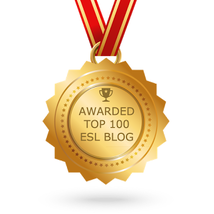|
A huge part of balanced literacy and a workshop setting is conferring with students. Conferring allows for maximum differentiation to meet specific instructional needs for students. But when we serve students who are also learning English, there is a need to accommodate the way we confer. After years of conferring with ELLs and tons of reading in the field, here are my tips for conferring with ELLs.
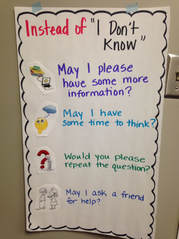
Confer Often
When we work with students who are learning language and learning to become stronger readers, it's important to confer more frequently than usual. The more time ELLs can get one on one or in small group with their teacher, the better. Now, that's not to say that conferences should be long in length...just more frequent. If you are lucky enough to have a co-teacher, then you and the co-teacher can both meet with ELLs and they can get a double dose of instruction. Conferring with an ELL may look and sound different than conferring with a native English speaker and that's okay! Lower the Affective Filter The affective filter is a like a giant brick wall that some students (not only ELLs) put up when they feel scared, anxious, nervous. This wall prevents learning from happening. The students' minds are focused on their fears and not on academics. As teachers, we can bring down the affective filter by making our kids feel comfortable and safe. Smile, let them know you genuinely care, and be careful about correcting grammatical errors. One way to quickly shut down a student who is learning English is to call them out on grammar errors in front of their peers. Instead try "recasting". For instance, if a child says they goed to the mall yesterday. You can respond by saying something like, "How nice that you went to the mall yesterday." I have found that talking about a student's native language or culture helps lower the affective filter. Asking them questions about their lives sends them a message that we care about them as people. If a student has a book in their native language, I ask them to share a little of it with me and I tell them how awesome it is that they can read in another language. Encouraging bilingualism and valuing the student's native culture tends to bring the walls down and lift student's confidence up! Respect Language Levels When conferring with ELLs, refer to their language levels and be respectful of the silent period for newcomers. We never want to force a newcomer to speak in English when they just aren't ready yet. Keep in mind that students' receptive skills (listening and reading) are usually stronger than their expressive skills (speaking and writing). I think of myself as a Spanish learner. I can definitely listen and comprehend Spanish better than I can speak and write it. When conferring with ELLs at different levels of language development, we want to tailor questions to meet their linguistic needs. Beginners: We may ask questions that require students to point to answers or give students one step commands. Point to the ___. Show me the ____. Intermediate: Questions might consist of Yes/No and then move to questions that have simple choice. Is this his or hers? Is it a large truck or small truck? Advanced: Ask open ended questions starting with "why" and "how". Advanced high: Ask "Why do you think..." What would happen if..." Scaffold and Support There are many ways to accommodate a conference to scaffold and support ELLs. Two of my favorites are to use visuals and sentence stems. When discussing reading with an ELL, I have found it helpful to sketch or pull up visuals for words they are unfamiliar with while we talk. Visuals are a quick way to make content comprehensible. As I ask questions during the conference, if my ELL does not respond even after I give ample wait time, I provide a sentence stem or starter to see if that helps give them some inertia to get their thoughts rolling. Often they have the answer in their heads but they just have trouble put it in a sentence grammatically. The sentence stem helps with that. Teach Students to Self-Advocate Teaching students to self-advocate gives them power and makes them feel that they can control over their learning. I like to do this be explicitly teaching my students what to say when they don't have an answer. Instead of saying, "I don't know," here's what you can say (see picture of anchor chart)...
Conferring is a critical piece of instruction in a workshop setting. For me I think of it as diagnostic. Like when I go to the doctor's office and I'm in the room with the doctor alone and she's examining me, asking me questions and assessing my needs. The conference with students is similar. We meet individually to assess students' needs. Where are they in their reading, what are their indidivual needs, where do I need to take them next? Conferring helps us as teachers build instruction for small groups. Yes, conferring is super important. But working one-on-one is not efficient when you have 20+ students in your classroom. If I have 5 or 6 kids with the same need, it's more efficient to pull them together in a small group and work with them at once rather than to meet individually with each of them and tell them all the same thing. Conferring is a great for diagnostics. But after conferring, we have to reflect and use that information to guide our next steps in instruction. Resources: Fountas, I. C., & Pinnell, G. S. (2017). Guided reading: responsive teaching across the grades. Portsmouth, NH: Heinemann. Calkins, L. (2015). A guide to the reading workshop, primary grades. Portsmouth, NH: Heinemann. Calkins, L. (2015). A guide to the reading workshop, intermediate grades. Portsmouth, NH: Heinemann. 8/30/2017 07:43:01 pm
I've just discovered your blog. I teach settlement English to adult newcomers in Ontario, Canada. I'm getting some very good ideas from you. --K
Valentina
8/30/2017 07:50:24 pm
Thank you, Kelly. How did you stumble upon this blog? I'm happy to know that it's relevant for adult learners too. I would love to hear about which ideas you will take back to use with your students. Comments are closed.
|
Categories
All
|
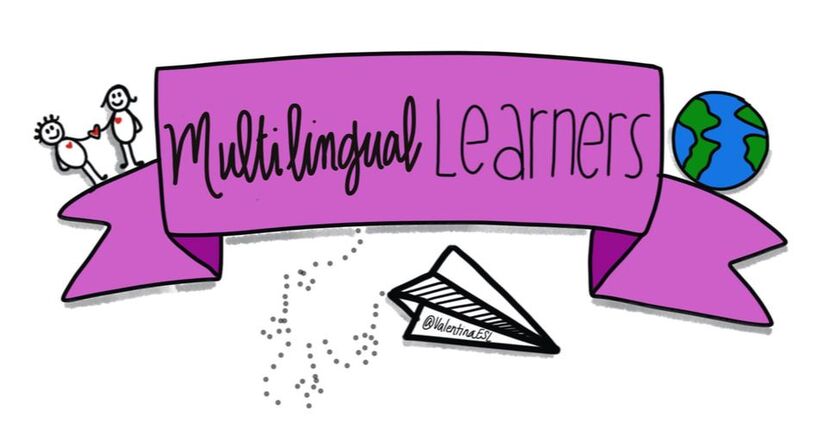
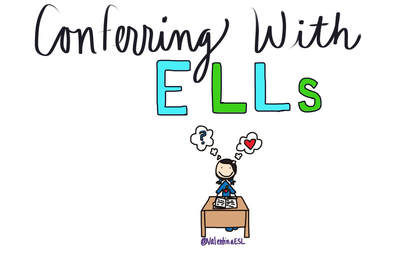
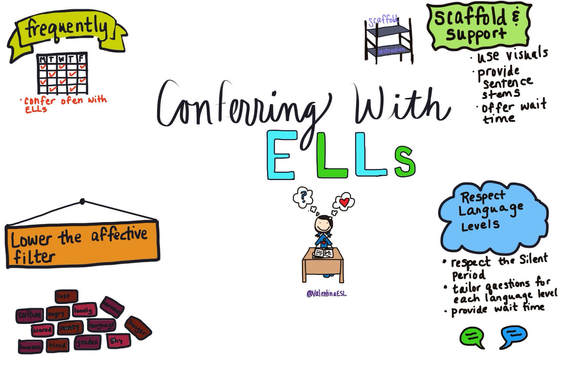
 RSS Feed
RSS Feed
